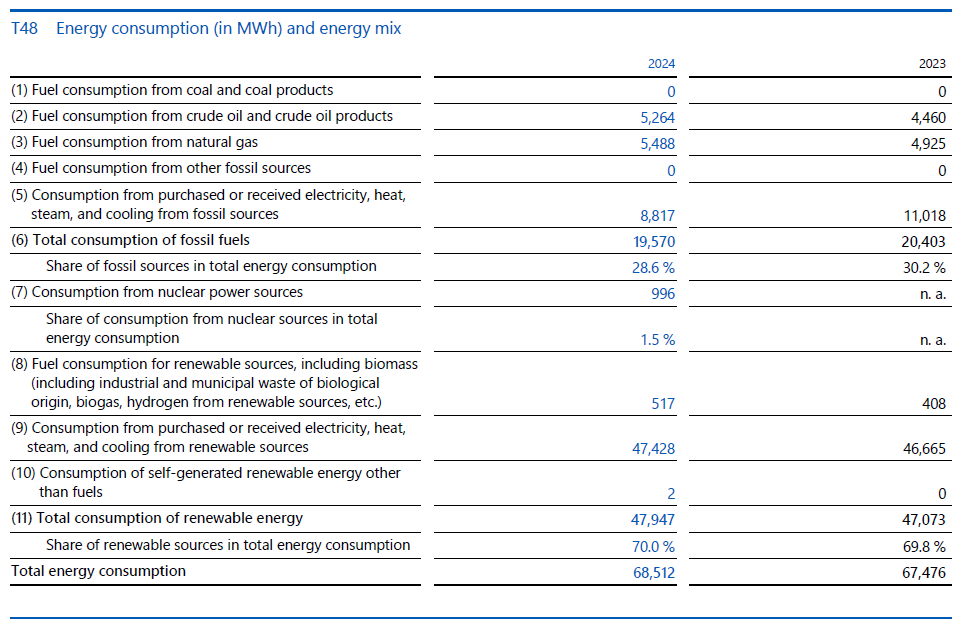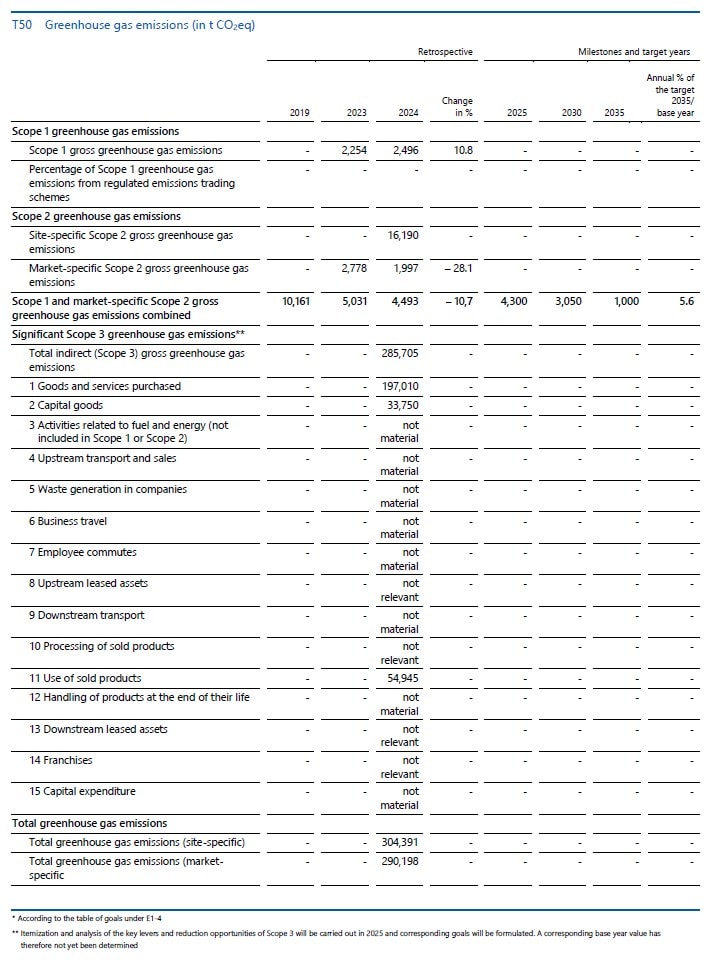Environmental and climate protection by conviction
Protecting our environment is a high priority for us, and we see it as our corporate responsibility to grow sustainably in harmony with the environment and society. In the area of the environment, we focus on the topics of climate, energy and emissions, water, waste and product responsibility.
As a manufacturing company, our focus is on efficient resource management to reduce energy consumption and the ensuing greenhouse gas emissions as much as we can, using commodities and materials carefully and safely and to avoid hazardous waste as far as possible. From the very start of the development process, we paid attention to environmental aspects and the economical use of resources. Through regulated recycling and disposal, we can minimize the impact on people, the environment and nature.
The “Investor Relations & Sustainability” and “Environment, Health and Safety” (EHS) departments are responsible for managing and controlling sustainability, environment, health and safety matters. They define group-wide targets and framework conditions and integrate management systems into business processes. Operational implementation takes place in the divisions. Continuous review, regular internal audits and external certifications ensure that systems meet standards. Depending on their environmental relevance, selected Jenoptik companies are certified compliant with the environmental management standard ISO 14001.
Energy and climate protection
Climate change is one of the greatest challenges of our time. Climate protection is also of central importance to us at Jenoptik. As an ‘enabler’, we make an indirect contribution to greater climate protection and resource conservation through our innovative products.
At the same time, we are pursuing a clear strategy to reduce GHG emissions. By increasing the proportion of green electricity to over 90 per cent by 2025, we want to reduce our CO2 emissions and make a contribution to greater environmental protection. By 2025, CO2 emissions from our own business activities (Scope 1+2) are to be reduced by more than 55 per cent compared to the base year 2019. Both targets were already achieved in 2024. By 2035, we are aiming for net zero, i.e. the avoidance of any emissions with a maximum of 10 per cent compensation with regard to Scope 1+2 emissions. Jenoptik has also introduced an energy management system at key production sites in Germany and had it successfully certified in accordance with ISO50001.
Water
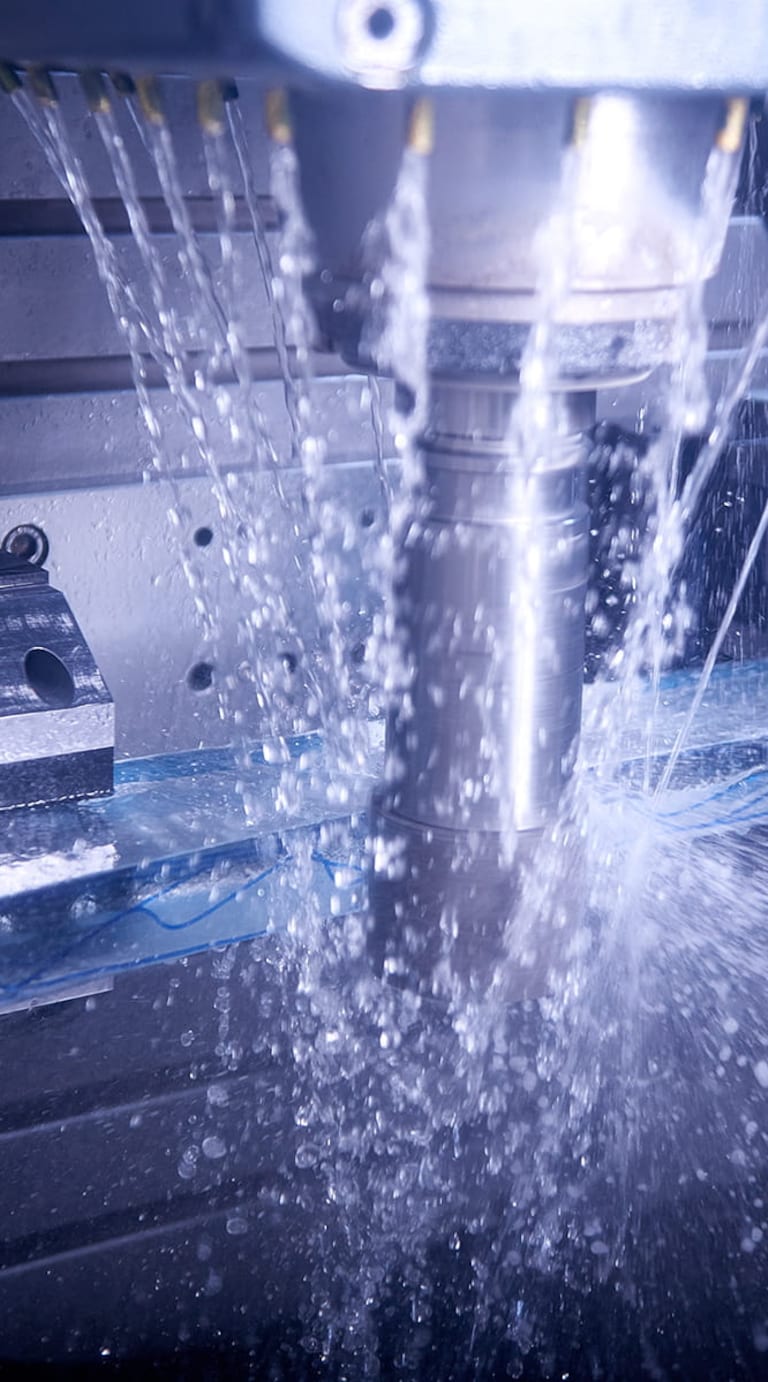
Waste & recycling
Increasing the reusability of electronic components, for example, is an important concern for Jenoptik. Both the use of recyclable materials in product development and the increase in recyclable waste make an important contribution to conserving resources and reducing avoidable waste in terms of the circular economy.
Our aim is to avoid waste generated during production as far as possible, to recycle it and, if this is not possible, to dispose of it properly in order to minimise any negative impact on the environment. Waste is always recycled by certified waste management companies. Continuous waste separation and employee training on waste avoidance are firmly implemented measures.
Product responsibility
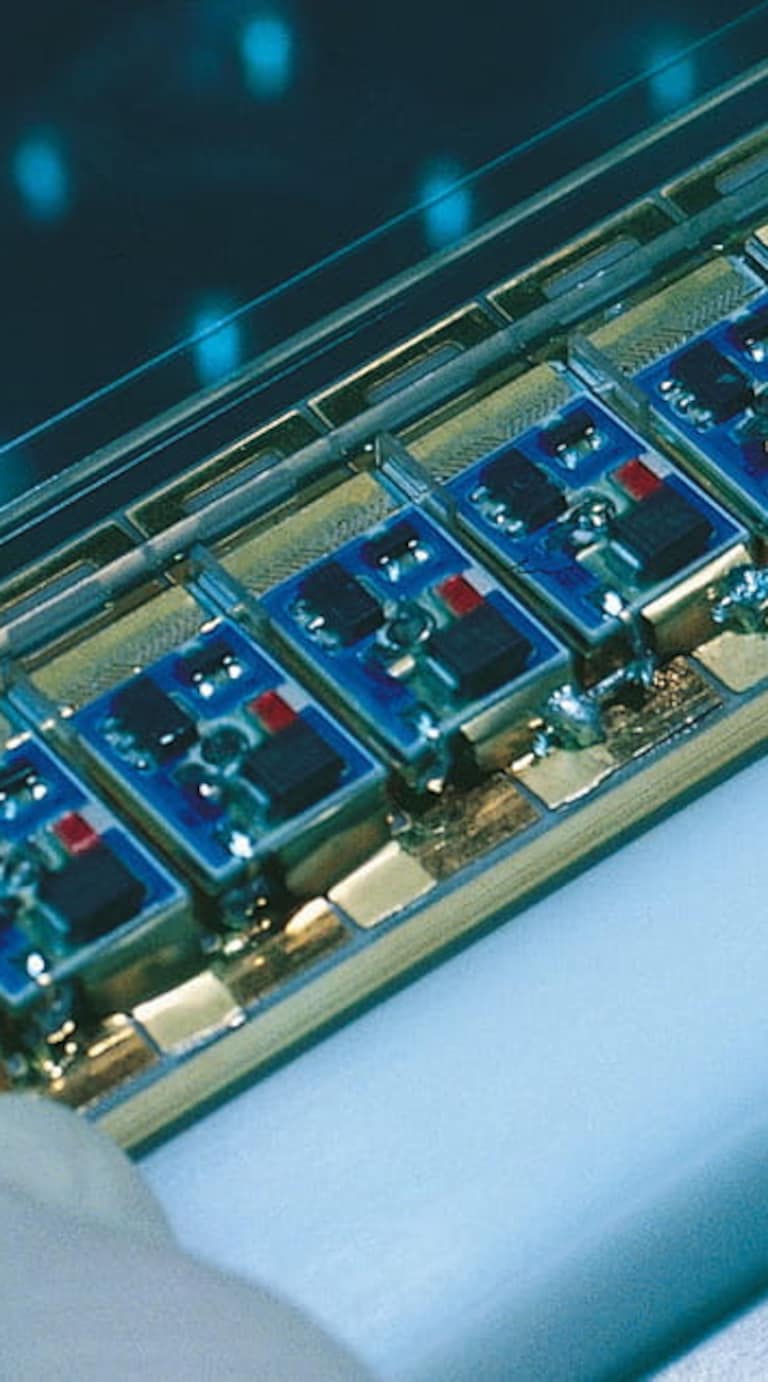
Key figures
Water consumption (in m3)
| 2024 | 2023 | 2022 | |
|---|---|---|---|
| Total | 95,962 | 92,444 | 98,874 |
- You can read more about this in our Sustainability statement.
Hazardous and non-hazardous waste (in t)
| 2024 | 2023 | 2022 | |
|---|---|---|---|
| Non-hazardous waste | 1,095 | 1,127 | 1,305 |
| Paper and cardboard in t | 246 | 224 | 198 |
| Mixed packaging in t | 136 | 159 | 197 |
| Household-type commercial waste in t | 268 | 301 | 366 |
| Metals in t | 129 | 152 | 189 |
| Other non-hazardous waste in t | 185 | 292 | 356 |
| Hazardous waste | 187 | 195 | 175 |
- You can read more about this in our Sustainability statement.
Environmental protection
Protecting the environment is a high priority for us, and we see it as our corporate responsibility to grow sustainably in harmony with the environment and society and to use resources and energy efficiently. Our products enable our customers to act in a resource-saving, efficient and sustainable manner.
Environmental management is a solid part of our corporate conduct. Our suppliers and contractors are also required to comply with the applicable regulations in order to minimize environmental risks. As a manufacturing company, our focus is on
- efficient resource management to reduce energy consumption and related greenhouse gas emissions as much as we can;
- careful and safe use of materials;
- avoiding waste as much as possible;
- ensuring environmentally friendly design and economical use of resources from the development process;
- and minimizing the impact on people, the environment and nature through regulated recycling and disposal.
For all new constructions, extensions and modernization work of production, we comply with statutory nature and environmental protection standards and sometimes exceed them.
Competition for greater sustainability
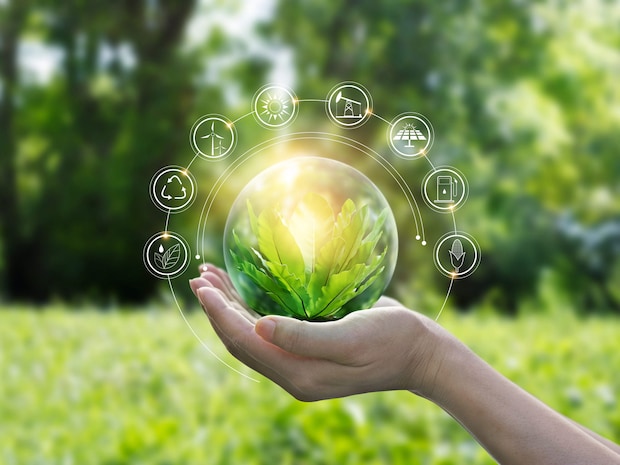
Jenoptik employees are committed to more sustainability in the company and more environmental protection not only in their direct working environment, but often through joint campaigns at their sites.
The Group-wide sustainability contest, which was launched in 2020, rewards this commitment for projects implemented in the following categories:
- Waste / recycling / circularity
- Careful use of resources
- Energy or CO2 savings
- Biodiversity
An internal jury evaluates all proposed projects after the submission deadline each year and awards prizes to the best entries.
Successfully implemented sustainability projects
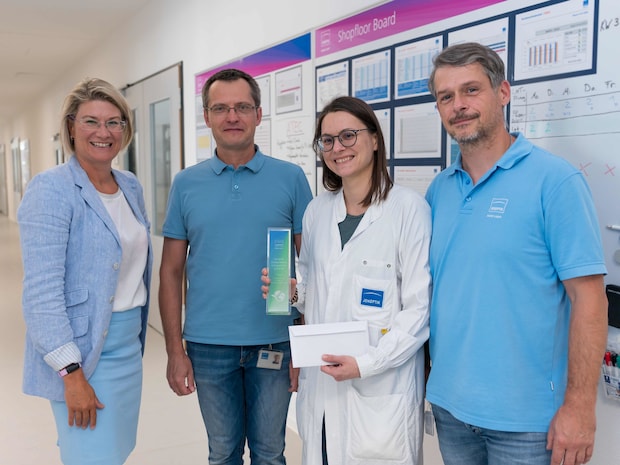
Circular economy
Clever modular design has opened up new possibilities for reuse in the field of imaging and sensor systems. In two products, important individual components were extracted from defective modules and reused. In total, more than 200 components are already being reused, resulting in significant cost savings.

Circular economy
In the JOS department, discarded parts are given a second chance in prototype development. With the help of refurbished parts from returned deliveries, the team was able to develop a prototype for a major customer within a very short time. This not only conserves valuable resources and materials, but also impresses our customers with faster implementation.
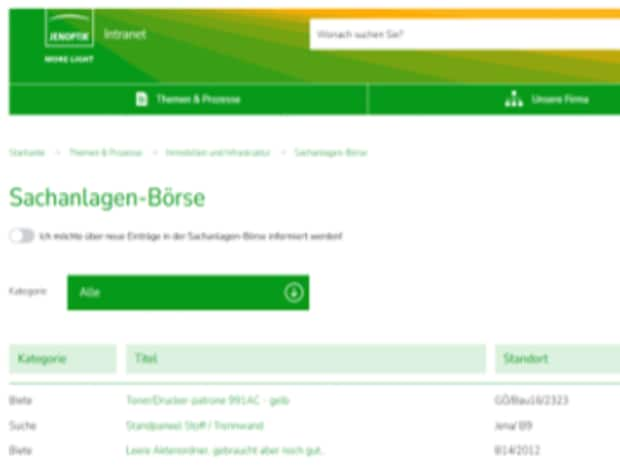
Waste prevention
A new internal ‘Asset Exchange Platform’ has made it possible to give discarded equipment such as furniture, machines or tools a new lease of life within Jenoptik. This not only reduces waste and the cost of new purchases, but also strengthens cross-departmental networking among colleagues.
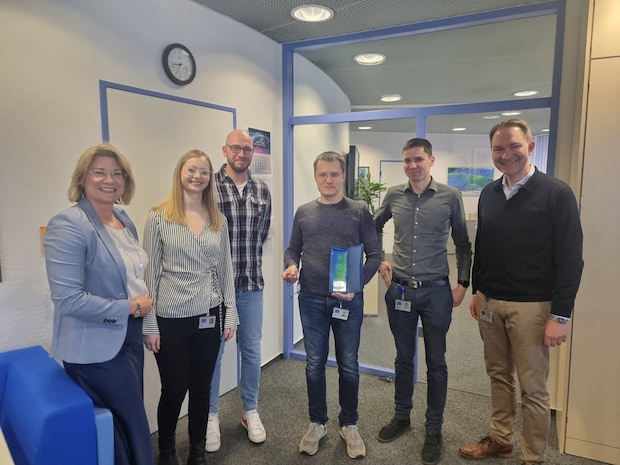
Circular economy
At our Imaging & Sensor Systems production facility in Jena, Germany rejected parts of highly specialized cables, which are required in the manufacturing process of assemblies for semiconductor chips, can now be repaired in collaboration with suppliers.
This does not only reduce electronic waste, but it also helps saving valuable materials and saves costs.
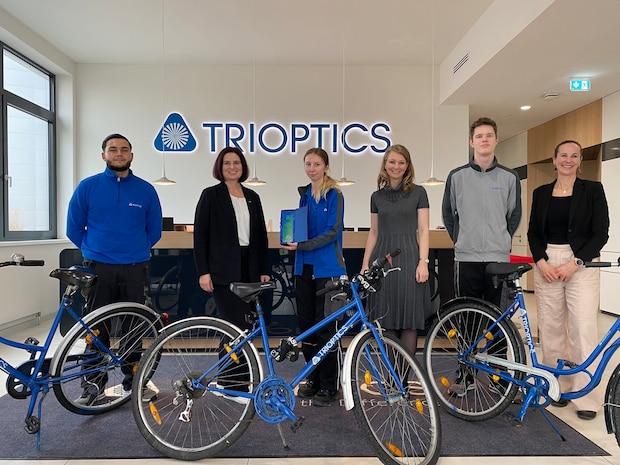
Circular economy
The TRIOPTICS trainee in Wedel, Germany and their instructors repaired old, abandoned bicycles, upgraded them and converted them into rental bikes in the company design. Employees in Wedel can now use them to commute emission-free between the factory buildings.
Not only have the bicycles been given “a second life”, but their users are also actively doing something for their health and sustainability on our planet.
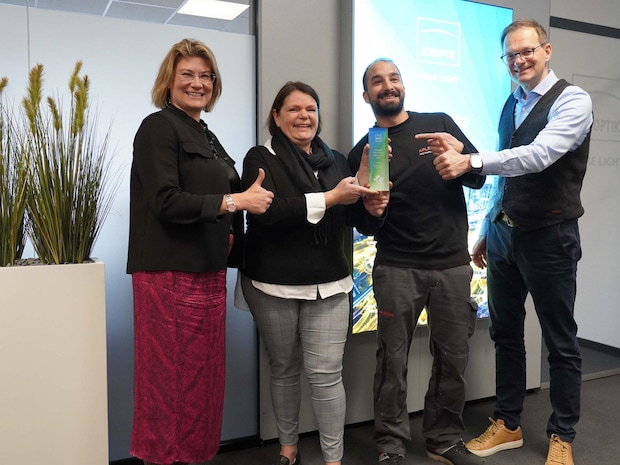
Resource conservation
A team in Monheim, Germany realized a project to reduce gas consumption in the production area. By adjusting the heating circuits and checking their adjustment, gas consumption was reduced by as much as 28 percent.
This does not only save valuable resources and costs, but it also avoids emissions that are harmful to the climate.
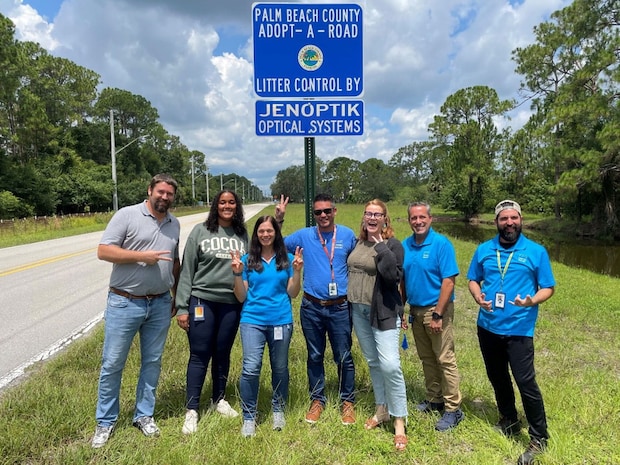
Employee engagement
A US team in Jupiter, Florida was recognized for the “best sustainability campaign”. In a “Quarterly Cleanup,” the employees remove trash and debris from the side of the Innovation Drive, where the Jenoptik company is based.
This regular activity does not only contributes to environmental protection, but it also strengthens team spirit.
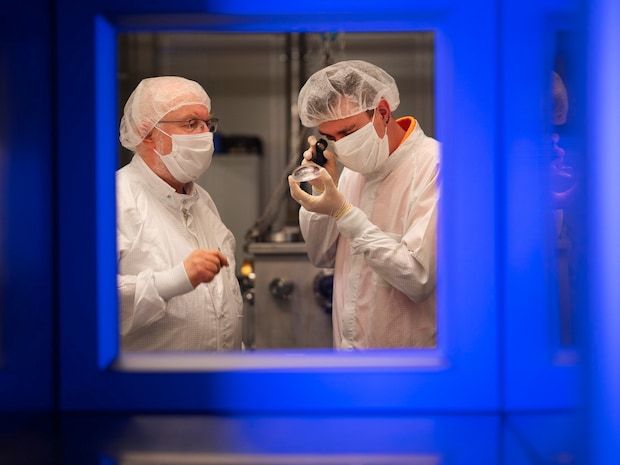
Recycling
In line with recycling management, Calcium fluoride lenses that were evaluated as defective scrap parts can now be converted to other raw parts internally to manufacture other lenses. This procedure reduces waste, conserves resources and avoids scrapping high-value materials.In addition, ...
- Saving solvents in the manufacturing process of semiconductor lasers at our Berlin Adlershof site.
- Transfer of more plastic materials to the recycling process at the Triptis site.
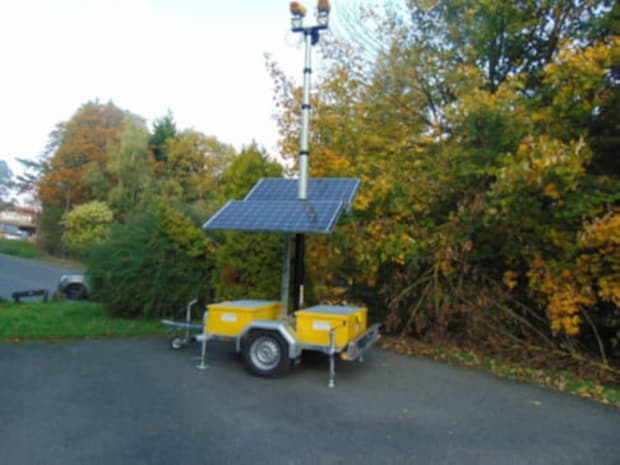
Zero carbon power
With iTASCAR, our developers in the UK succeeded in creating a sustainable and environmentally friendly solution for measuring average speed. Previously, electricity grids or diesel generators were required for connection. Now, only renewable and carbon-free energy from wind, solar and hydrogen is used for this purpose.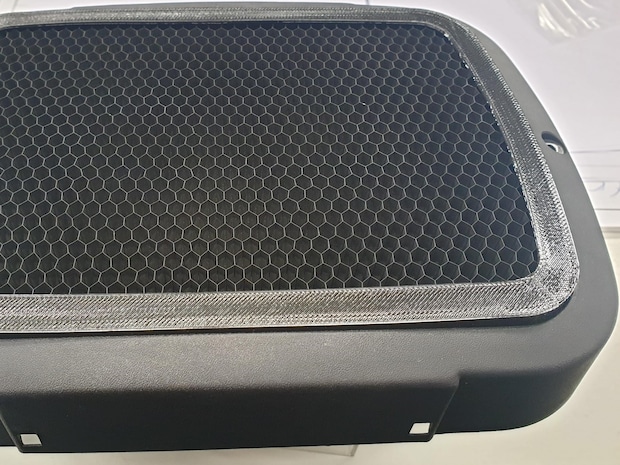
Resource conservation
In the production of "honeycomb filters" in flash lamps, waste is reduced and resources are saved thanks to an efficient solution by printing an intermediate frame using a 3D printer to replace the silicone layer. Thanks to this production of partial components, the filters now no longer have to be completely replaced and disposed of. Instead, filters, frames and intermediate frames can be replaced individually.
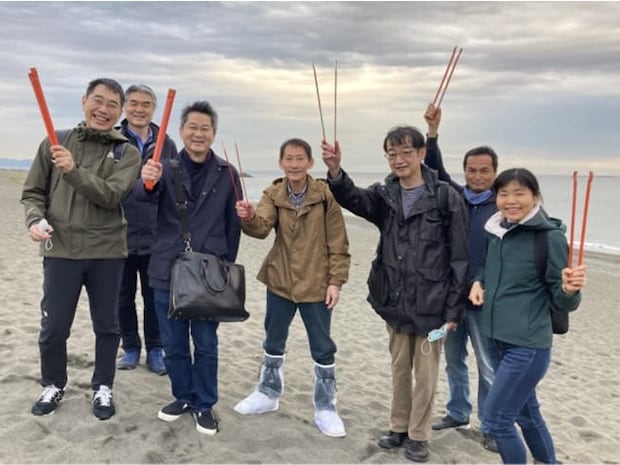
Employee engagement
In cooperation with the "Coastal Environmental Foundation", Jenoptik employees in Japan organized a beach cleanup and collected trash to reduce the local environmental impact. Besides, Jenoptik Japan became a member of the foundation and plans to repeat the beach cleaning event annually to make the contribution to environmental protection more permanent.In addition, ...
- Tree planting campaign in Jena, Germany for more greenery in and around the city.
- Jenoptik takes over bee sponsorship with the Jena Beekeepers' Association.
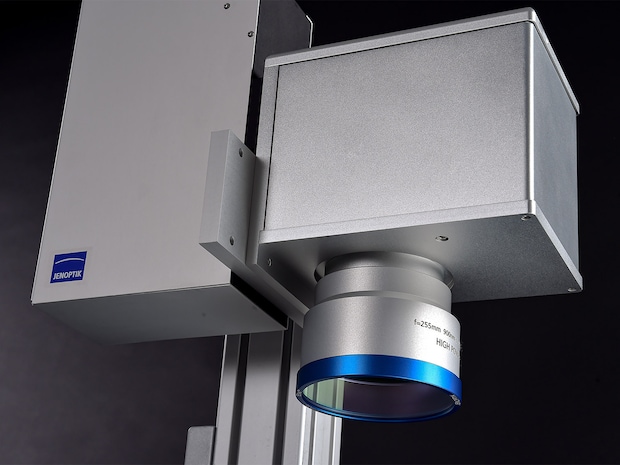
Recycling management
Our JENvelt® system developed in cooperation with Prozessfabrik Berger enables "replacements instead of rejects" and is used by our customers in laser processing machines. A complex component no longer has to be completely disposed of in case of a defective subcomponent.In addition, ...
- Waste reduction initiatives, e.g., by switching to reusable cups at North American sites.
- Reuse of used IT equipment at the UK site.
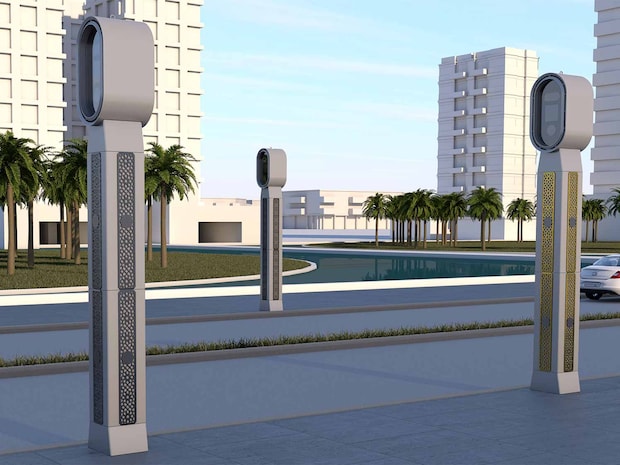
Resource conservation
With TraffiPole, our developers succeeded in creating an environmentally friendly and sustainable traffic monitoring solution that can also be operated autonomously with batteries or solar panels, thanks to a housing made of fully recyclable materials, reduced power consumption and the elimination of cooling.In addition, ...
- In Monheim, Germany, the life cycle of furniture and equipment was extended and indoor emissions were reduced by cutting down on fax machines and printers.
- In Jena, irrigation bags were purchased for 100 trees to ensure water and nutrient supply to the trees close to the Jenoptik premises during dry periods in midsummer. Both water evaporation and water consumption are greatly reduced as a result.
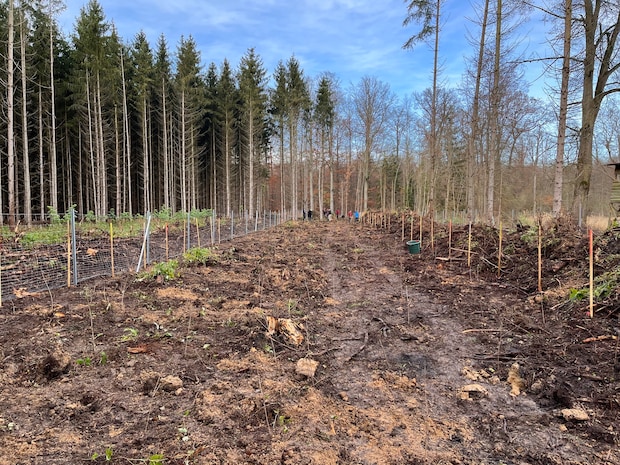
Biodiversity
With a great deal of commitment, Jenoptik employees planted 1,000 trees in the Jena forest and made a contribution together to climate protection and more greenery in Jena.
A green roof was installed on a newly constructed building in Villingen-Schwenningen to promote biodiversity. The roof uses rainwater for the plants on the roof, provides improved thermal protection in summer, and has less heat storage in the evening hours.
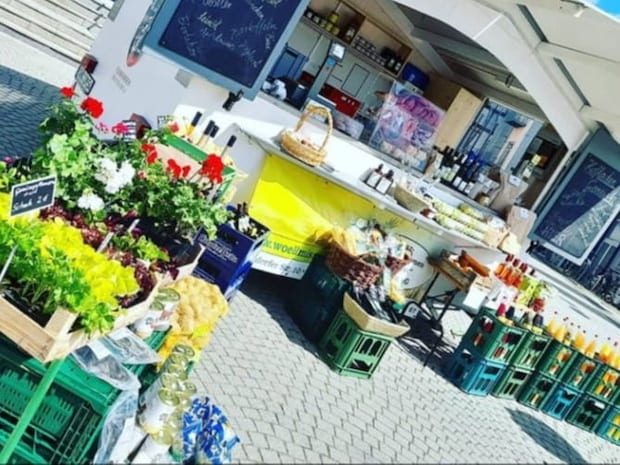
Employee engagement
Based on idea from an employee, a mobile organic farm store supplies employees with regional and seasonal products every Friday on the front yard of the production buildings in Jena.
Land reclamation and beautification: Jenoptik employees in Jupiter, Florida cleared an old scrap yard on the production site and then reclaimed the area as an outdoor fitness area and work-out space. This project helped restore nature, decrease industrial footprint and create long-term health benefits.
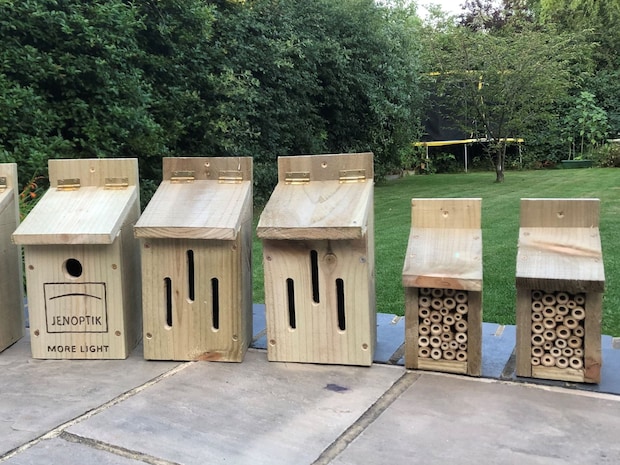
More biodiversity
The winner in 2020 was our UK team at the Camberley site with a project in the Biodiversity category.
By redesigning an area close to the company, targeted planting of shrubs and wildflowers and the installation of insect hotels transformed the unused grassland into a kind of recreation area for our employees, which is used for walks and yoga during breaks and provides a home for numerous insects.
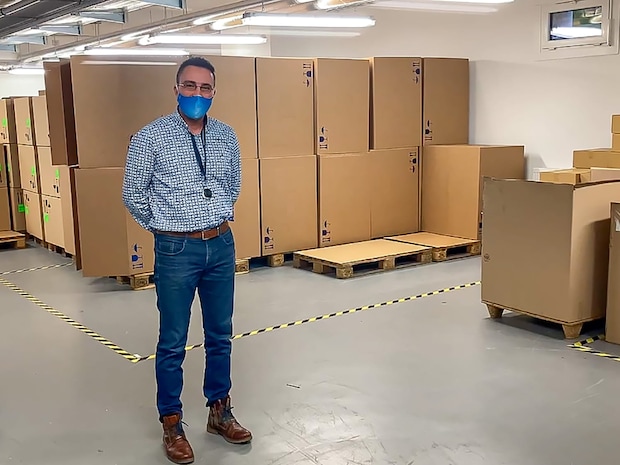
Circularity
Reuse of packaging material in sensors division: foam corners and cooling packs are fed into the recycling circuit in Dresden and used for new packaging. This reduces foam waste and hazardous waste and protects our environment. Old boxes are also recycled for consignments and even coffee grounds are used as a humus in the garden.
In addition,
- solvent use is reduced in the production process of semiconductor lasers in Berlin Adlershof
- The Triptis site is transferring more plastic materials to the recycling process
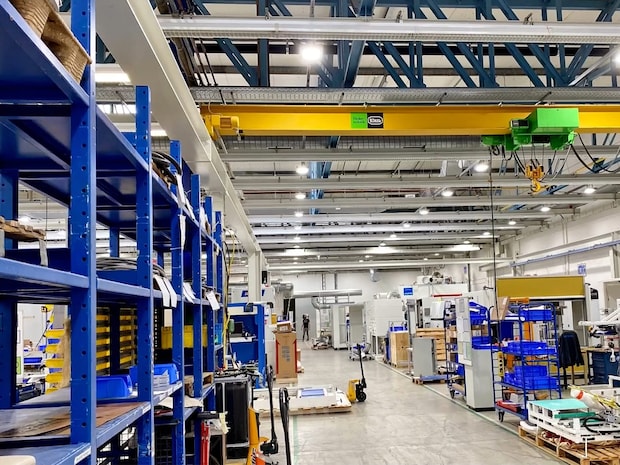
Energy savings
LED lighting is generally installed during modernizations which creates a better working environment and saves valuable resources through a longer service life. The introduction of a compressed air control system has optimized the power consumption of compressors. The increased machine service life also saves resources and reduces repair costs. The introduction and establishment of peak load management in the transformer sector has led to savings in electricity network utilization. A brief shutdown of secondary processes (e.g., room cooling) prevents power peaks that put strain on the grid. Non-essential systems (e.g., air conditioning systems, canteen ventilation systems, refrigeration systems, etc.) are adapted to work processes for the Covid pandemic and weekends or are completely switched off to save electricity.

"Go Green"
Transformation of the vehicle fleet to hybrid vehicles. Reduction of CO2 emissions and pollution contribute to greater environmental protection. Fuel savings and competitive vehicle prices with lower fuel costs increase efficiency.
In addition,
- drinking water dispensers and reusable drinking bottles are replacing the complex water ordering process at various locations, which saves time and reduces transport costs and emissions.
